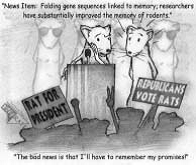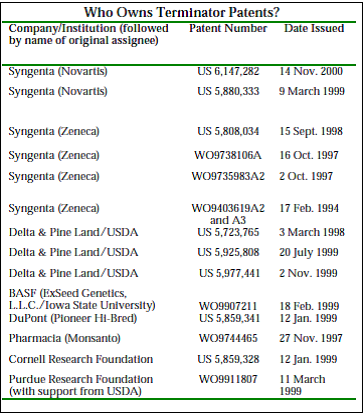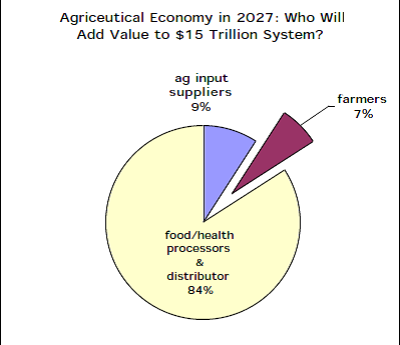This Communique identifies new mechanisms - ranging from remote sensing technologies, biological monopolies, and legal contracts - that are being developed by a broad range of industries to strengthen corporate dominance over new technologies. The political, practical and technical uncertainties surrounding intellectual property are increasingly unacceptable to industry - and that is why companies are developing new tools for monopoly control- what ETC group calls "New Enclosures."
Briefings

Alternative Mechanisms to Enhance Corporate Monopoly and BioSerfdom in the 21st Century
On the Centenary of a Famine
In a period framed by the World Food Summit of 1996 and the Summit's rescheduled review in 2002, ETC Group looks back at the same span of years one century earlier as history lesson and as portent. These years (1896-1902) marked an era of devastating global famine when no less than 30 million people died in circumstances strikingly similar to those we face today-trade liberalization (i.e., "globalization"), climatic change, (corporate) colonialism, and a set of new technologies promising, once again, to feed the hungry.
World Food Day - What to do if Your Gene Bank is Contaminated with GM Seed
As the UN Food and Agriculture Organization (FAO) recovers from delays to its World Food Summit at the hands of Italy's Silvio Berlusconi, the world's agricultural gene banks fret over GM contamination and government 'biocrats' gird their loins to fight for an International Undertaking intended to protect world seed security.

A Political Epilogue to the Book of Life: Update on Pharmaceutical Multinationals
Issue: For five years now, public concern about genetic engineering has been riveted on GM crops and foods. But, advances in mapping the human genome have spawned new pharmaceutical industry opportunities. While the prospects for human cloning and stem cell therapies grab the headlines and divert our attention, the companies are pursuing more strategic agendas. Although the majority oppose reproductive cloning, public and policy opinion is 'soft.' Industry's latest and most lucrative market - Human Performance Enhancement drugs - 'HyPEs' - are not even on the policy agenda.

Concentration in Corporate Power: The Unmentioned Agenda
Issue: Concentration in corporate power is the defining feature of today’s (2001) global economy. The “life sciences” industry is converging into new corporate structures that have profound implications for every aspect of commercial food, agriculture, and health.
CDMT - Can Dinosaurs Make Teammates?
RAFI offers a detailed, critical analysis of re-structuring options for the Consultative Group on International Agricultural Research (CGIAR), and advice for farmer-led food security. Is CGIAR prepared to make major structural and governance changes in order to salvage public sector agricultural science?
In Search of Common Ground
Negotiations on the revised International Undertaking at FAO will profoundly affect the world's ability to respond to climate change. Failure will lead to a rapid reduction in the exchange of plant breeding stocks between countries and institutions. Agricultural research will be severely damaged. RAFI looks at the major issues and controversies under discussion in the final rounds of negotiations.

RAFI's Annual Update on Terminator and Traitor
Terminator patent portfolios are changing hands because the Gene Giants are consolidating, spinning off, and selling agbiotech interests. New patents describing genetically modified plants with weakened immune systems that depend on the application of a chemical to regain their natural defenses against pests and disease are the most troubling examples of Traitor technology to date.

What's in the GM pipeline? How will it work? Who will control it? What does it mean for farmers, consumers and policymakers?
Biotech's 3rd Generation refers to products that will offer perceived health, nutrition or lifestyle benefits for consumers. The lure of a technologically-integrated $15 trillion system will attract whole new corporate configurations. The Gene Giants may slip down the food chain when the food & beverage industry or the grocery retailers buy into Generation 3.
Declaration of Athens is DOA at Georgia's International Congress of Ethnobiology. Ten Points on Piracy are offered toward a more constructive discourse.
At Georgia's International Congress of Ethnobiology a proposal for a "Declaration of Athens" to set the standard for best practices and for intellectual property protection related to indigenous knowledge was pronounced 'Dead on Arrival' by indigenous leaders invited to the symposium. Ten Points on Piracy are offered toward a more constructive discourse.
